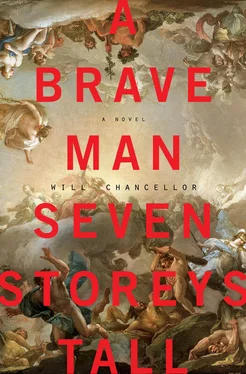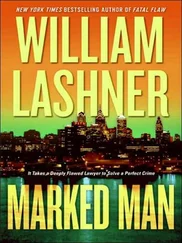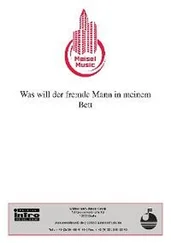— You could carry a smaller bag and keep the blanket outside, but this is the only pack I’ve got. And this way it’ll stay dry. What are you doing for food?
— I thought I’d fish.
— No. Next idea.
— Why not?
— You need a permit, for one. The rivers are all privately owned, and those guys are deadly serious about what rods get on their river. For two, the nearest river to where I’m going to send you is early-run.
He now got out a map and drew a star in the northwest.
— You haven’t been to Akureyri yet?
— No.
— It’s the start of the Tröllaskagi, the Troll Peninsula. You’ll fit right in. It’s also my favorite place in Iceland.
— I’ve heard it’s warmer in the north than in the south.
— That’s mostly true. But it’s all cold come October. When it gets cold, you’re going to need to be in a city.
He drew a star on a green field near the fjord.
— You’re probably going to be in trouble before it even gets cold.
Owen was still looking at the lures.
— If you’ve gotta fish, you can go do some sea angling in the fjords. You might be able to get work on a boat if someone moved or died.
Owen folded up the map and put it in his coat pocket.
— Now the boots. Try these on.
Owen could tell on sight that they wouldn’t fit.
— That’s the largest size you have?
— You’ll have to go to Reykjavik to find bigger. Tell me why in the hell anyone would come to Iceland for a hiking trip in a corduroy suit and a pair of loafers.
— This wasn’t well planned.
— Really?
— Those aren’t going to work. What can I do? Stuff the gaiters?
— That’ll work, I suppose. I’ll coat the hell out of them with seam seal.
Owen was looking at the thick wool socks.
— Oh. Actually. You can probably fit in a pair of SealSkinz.
The shop owner grabbed a pair of black waterproof socks from the rack.
— Wear these for the river crossings. You’re lucky — most people have to hold their pack over their head when they forge a river. You can probably just leave it on your back and walk across.
Owen exhaled loudly, thinking about crossing arctic rivers.
— I’ll throw in two pairs of wool socks, long johns, and an expired box of energy bars.
— How expired?
— Just a month. They’ll be good for at least four or five more months in the cold.
Owen was doing some mental math and thought he might not be getting such an extraordinary deal. But he thanked the salesman nonetheless and packed up his gear.
— There are trolls and elves in the highlands. Not as many now as there were in the old days, but you should stay away.
— I can’t tell if you’re being serious.
— No. I’m not. But stay away. There’s no water in the highlands, so you’ll die.
— Don’t worry. Tröllaskagi sounds like the perfect place for a monster to hide.
Twenty-two. Another tree ring. The remark was dark and cryptic enough to make the Icelander smile. Owen thanked him again. He walked through the door into the wide parking lot that blended into the road. He stuck up his thumb and tried to look as friendly as possible. After an hour in the drizzle, he caught a ride with a man in a four-wheel drive headed north on the ring road.
The sales team of hippies in the mountaineering retail chain — after converting Burr’s cash into the supplies now compressed into Gore-Tex bags stuffed inside his mammoth water-resistant, fully lined, independently suspended, lumbar-supported, iliac-crest-fitted, twelve-strap tightened backpack — were adamant about the importance of a “shakeout hike.” They suggested Burr go to the ancient meeting place, Thingvellir, and test his equipment on the beginner trails before he set off to find Owen. That way, he could come back to the outlet mall if it turned out he needed to buy more gear.
The trail through the Thingvellir Breach, a rift opened up by two tectonic plates pulling apart, trails like spindles anchored by two centrioles, is quite possibly the most in-between space in the world and should have brought his theory to mind. Instead, Burr scanned the landscape for Owen and only occasionally got lost in the colors.
There may have been more, but he only saw three: yellow, purple, and green. Endless permutations of yellow, purple, and green, all reflected back by a mercury-mirror sky. He looked up and saw the top of his head, his jacket’s electric blue arms, his black and grey pack, his silver poles dangling from his wrists like puppet sticks. The gravel crunched under his Alden boots as he hiked through the rift of two diverging plates. He was hiking the spine of the Mid-Atlantic Ridge, deep in a vertebral hollow surrounded by stacked sheets of lava lobes.
He wished his car in the parking lot were camouflage silver and not fire-truck red. But the mechanic Burr bought it from, who either had a tic or kept smiling because he had seen Burr on the news, presented him with two options: the beat-up red Escort or a green truck with an unreliable transmission.
The tent’s footprint was easy enough to stake down. As he bent a tent pole into the footprint’s grommet, the segmented aluminum rod sprung to life, nearly catching him in the face. With more caution, he flexed the other poles in place and fastened the hooks to the frame, creating a third, habitable dimension. With pure joy at his accomplishment, he sat with his thick wool socks out the zip door and practiced two knots in his newly purchased wilderness survival book while twilight swept over the shield volcano to the north.
Nearly every flavor of boil-in-bag food was hiding somewhere in his pack. Burr’s next challenge would be attaching the propane canister to the base of the Big Gulp — sized insulated thermos. They told him the device was a prototype, and he balked, thinking he couldn’t risk a malfunction. They told him they probably were just using the wrong word, and returned with the same unit, except this time in a cardboard box. Every hiker in the store swore that this was the greatest invention since Gore-Tex, which was good enough for Burr. Once attached, the canister stove promised to bring water to a boil in about a minute, which he would then pour into tonight’s dinner: gourmet boil-in-bag beef stroganoff.
He hoped he had correctly screwed in the palm-size canister of highly flammable pressurized gas. He held the device at arm’s length. With great faith, Burr clicked the ignition button and dialed a plastic knob like he had practiced in the store. A butane blue flame crackled to life. A strong easterly wind whipped through the vestibule of his tent, making the canister stove hiss like the milk steamer of his cappuccino machine — which he would have to banish from his head if he were going to survive all this camping.
After five minutes of letting the noodles absorb the boiling water, he dug in with his utility spork. Gourmet was no exaggeration. This was one of the finest meals of his life — certainly the finest beef stroganoff. He relished every bite. This life was livable.
Owen wouldn’t be here. There were too many tourists. He would be somewhere remote — well, more remote. Burr had sparked a debate in the camping store about the most remote part of Iceland. He got three different answers: the middle of a glacier, the middle of the black desert, and the central highlands. Once the word highland was uttered, everyone agreed. Too bad the highlands comprised the entire interior of the country.
He cut short the shakeout hike after only a night. He decided his chief problems were arthritis and poor fitness, not the comfort of his inflatable mattress pad. He was wasting time here. After two hours of struggling to fit his camp back into his pack, Burr finally slammed the trunk of his red car. The pack was still too heavy. He had shaken nothing out. As he drove north on the ring road, he smiled at being the butt of their joke: the store had sold him two hundred pounds of ultralight gear, all justified with the mantra “Light is right.” He was beginning to understand Icelandic humor.
Читать дальше












